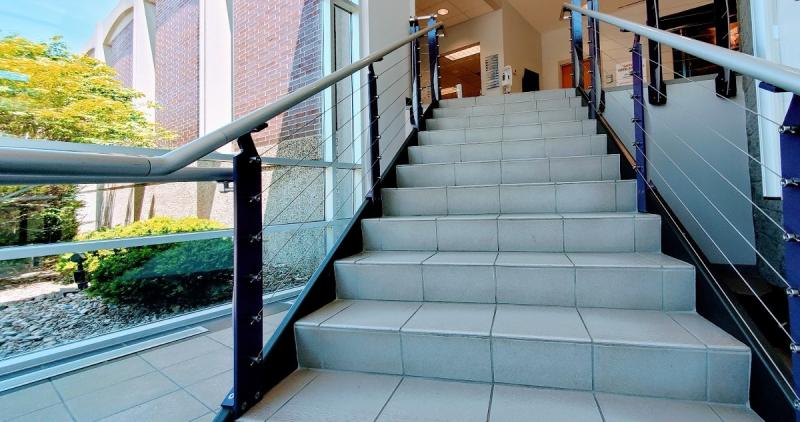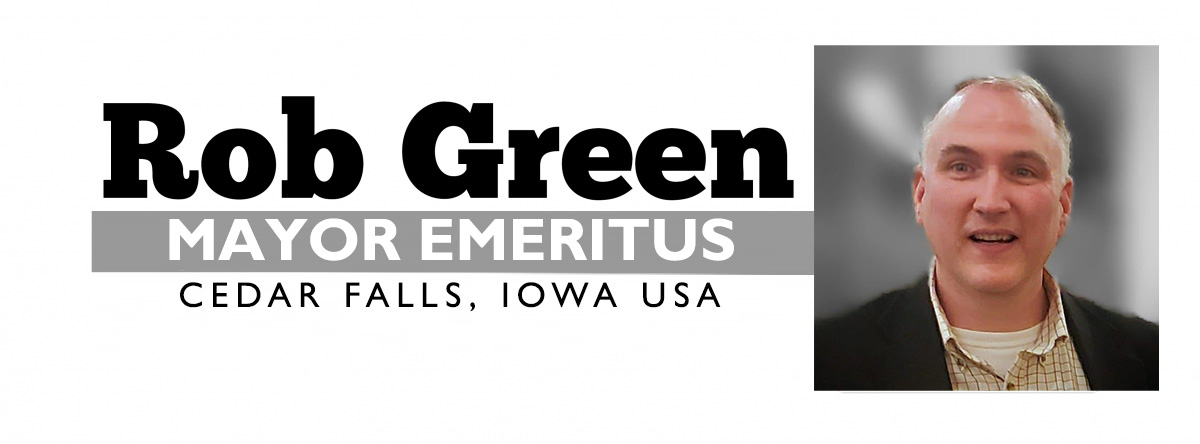
Cedar Falls, like the rest of America, has a long trek ahead in the path toward racial justice. Recently, in response to a post, a resident asked, "So what is the first step that Cedar Falls will take?". I'm not an experienced social justice activist, but I know this is an important part of any mayor's leadership role. Here are some initiatives I've been working on since I started as Mayor in January to foster a more diverse and inclusive community. Some of these are pretty simple, others are quite hard. All are worthwhile. In no particular order:
1. A Proactive and Visible Cedar Falls Human Rights Commission. I appreciate that the Waterloo Human Rights Commission regularly engages with the public to present news articles, events, and other resources of interest. Part of CHFRC's charge is to carry out similar engagement and education efforts in Cedar Falls. I attended the commission's annual retreat in May, and am taking a very active personal interest in the commission. Like Waterloo, I want to see our Human Rights Commission as a proactive voice for change, not just as a reactive handler of discrimination complaints. If this means that a separate group (like an Inclusion and Diversity Task Force) is needed, with people with more experience in education and outreach, I'll make that happen. Also, we've moved the HRC meetings away from the same night as City Council going forward, which will allow me (and council members, if desired) to attend these public meetings.
2. Recognition and Participation in Important Dates. Having come from working at UNI for five years, I've been part of celebratory days for a wide variety of cultural and people groups. It's important to recognize and learn about the heritage of the people who make up our community. One the simplest things a Mayor can do is issue Proclamation; heck, it doesn't even cost any money. I was surprised to learn that Cedar Falls had neither an MLK Jr. Day of Service Proclamation or a Juneteenth Proclamation. These are very important dates in the African American community especially, and I've corrected that, with assistance from the NAACP of Black Hawk County. Even if Cedar Falls doesn't have an official Juneteenth celebration, it's important that we share and spotlight the day as a celebration of the freedom of enslaved people. We'll do it. I've also directed that City Council no longer be held on MLK Jr. Day, so that city staff and I can take off Monday to participate in Day of Service activities. Finally, I'm charging the Human Rights Commission with establishing a city-sponsored Day of Service event which ties closely to social justice, which city staff, the council, board members, commissioners, and I can carry out together in honor of Dr. King's legacy.
3. Closer ties to the NAACP of Black Hawk County. LaTanya Graves, the President of the county NAACP, and I have begun talking about ways to connect Cedar Falls in more closely to the efforts of the NAACP. Though several members are residents of Cedar Falls, the focus of the NAACP is in Waterloo -- it's even in the website name, http://www.waterloonaacp.org/. While I appreciate that Cedar Falls is not purposely being excluded, I'm committed as Mayor to fostering a greater sense of purpose for a true county-wide NAACP, with Cedar Falls as active and engaged in addressing racial disparities as Waterloo. This isn't a quick change -- I appreciate there are decades of history and backstory there. But we have to address it and make significant progress for unity of purpose in the Cedar Valley.
5. Sister Neighborhoods With Waterloo. These past few years, I've been working hard to foster neighborhood identity and affinity in our town. I would love to see neighborhood leaders taking a strong sense of ownership for the quality of life in their shared patch of Cedar Falls. Part of that effort is with Waterloo's Neighborhood Services Coordinator, Felicia Smith-Nalls, to explore the idea of "Cedar Valley neighborhoods", not just Waterloo neighborhoods and Cedar Falls neighborhoods. By helping neighborhood leaders throughout the Cedar Valley to connect, we have a great opportunity for a "sister neighborhoods" partnership for sharing best practices, perspectives, resources, stories, and, most of all, understanding. This is the idea I'm most excited about as Mayor, and will continually work on this in the years ahead.
6. National Night Out / Neighborhood Police Engagement. The public's perception of local law enforcement is vitally important. One of the best public outreach opportunities for police-community partnerships is National Night Out, which this year will be on the evening of October 6th. Rather than one single large event in the Target parking lot (as has been done in past years), I'm encouraging neighborhoods to host their own picnics and events, with law enforcement officers invited to attend and participate. Along with that, I've directed Cedar Falls Public Safety to minimize the display of any SWAT-type weapons, vehicles, and other tactical gear which not part of their regular day; I want all residents to see our law enforcement officers not as para-military, but as fully-community.
7. Continued Law Enforcement Training. The Cedar Falls Police Division has invested in officer training for in de-escalation tactics and implicit bias awareness. This will continue. As new opportunities and resources arise, I will advocate for their use in our department. I'll need the help of all stakeholders (experts, officers, and the public) to keep the city advised of where the gaps are and ways to fill them.
8. Stories, Stories, Stories. Personal stories and experiences are often the most direct way to express how systemic racism impacts the community. Over the past decade, I've been honored to help capture and display stories from Iowa's military veterans, those impacted by Postville Raid, and other important experiences of Iowans. A similar effort for the stories of racism in Cedar Falls is needed...not to simply point fingers, but instead to soberly and proactively understand the scope of injustice and work ahead -- including an understanding of white privilege, microaggessions, and implicit bias in Cedar Falls.
9. Collaboration with UNI. Our University is a treasure for Cedar Falls, for many reasons. One key benefit is that it brings students, faculty, and staff from all over the country (and world). This has increased the social and cultural diversity of our city, and given us the opportunity to have perspectives and resources you wouldn't normally find in a town of 40,000 people. It was an eye-opening experience to attend the Racial and Ethnic Coalition's forum at Maucker Union last November, and to better understand minority student (and faculty) perspectives. Because Cedar Falls and UNI are connected by a student, faculty and staff population, any efforts for social justice in our community must include collaboration between the city and campus.
10. Acknowledgment / Overcoming of Sundown Town Legacy. This is probably the most challenging and complex issue to resolve. Dr. James Loewen, a researcher and author of the 2005 book Sundown Towns, lists Cedar Falls as one of "Iowa's Possible Sundown Towns". It's only in the past year that I even became aware of that term. But with a population of 92% white people, many factors are at work which limit the ability or willingness of non-whites to live in Cedar Falls. Factors that I'm not even close to understanding yet. But I know it's my responsibility to do so, as Mayor, and I'm committed to the effort. But it's also going to take a lot of time AND the effort of many stakeholder groups to understand, so I'm going to need your help. Going forward, we must be as welcoming as we say we are -- and as much as I know we can be.
All of these items will involve difficult conversations and challenging actions...and being role models for others in our community. We owe it to our brothers and sisters who've been systemically oppressed and marginalized for centuries to take these "first steps". As Mayor of Cedar Falls, I look forward to our taking these steps together.
